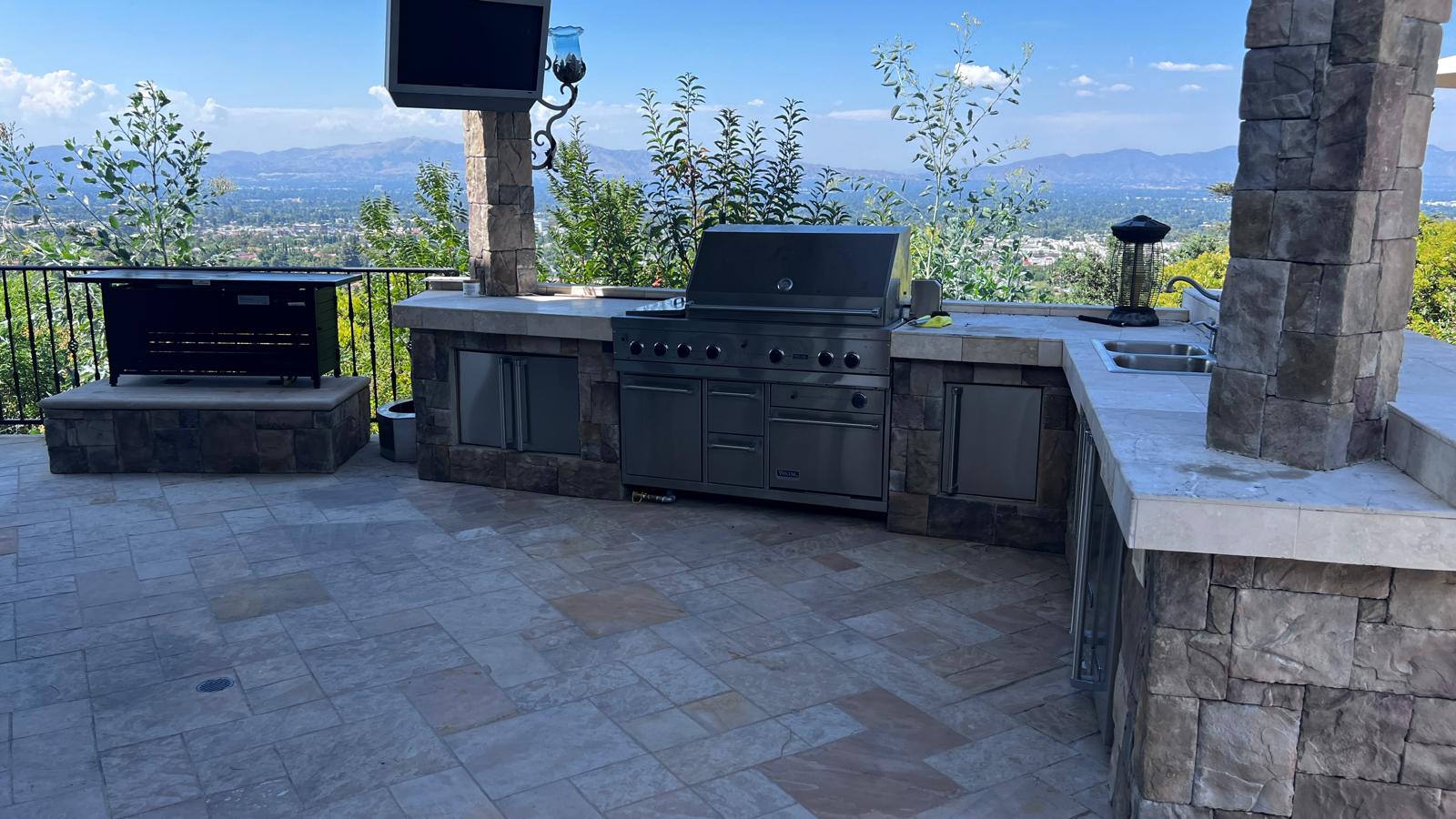Finding the courage to seek help for addiction is one of the most important decisions you’ll ever make. When you’re ready to take that crucial first step, choosing the right detox center becomes paramount to your safety and long-term recovery success. The landscape of detox centers near me can feel overwhelming, with each facility offering different approaches, amenities, and levels of care. This comprehensive guide will help you navigate these choices with confidence, ensuring you select a facility that meets your unique needs while providing the medical supervision essential for safe withdrawal.
The decision you make about where to detox isn’t just about convenience or location—it’s about finding a place where you can begin your recovery journey with dignity, comfort, and comprehensive care. While this guide covers national considerations for finding quality detox services, readers in specific regions may want to explore specialized options like comprehensive detox programs in Los Angeles County that combine luxury amenities with evidence-based medical protocols.
Understanding What Makes Detox Centers Different
Not all detox centers are created equal, and understanding these differences can literally be a matter of life and death. The spectrum of care ranges from basic detox facilities that simply help you through withdrawal, to comprehensive medical detox near me facilities that provide 24/7 medical supervision, medication-assisted treatment, and integrated mental health services.
Medical detox centers distinguish themselves through their ability to handle complex withdrawal scenarios. According to the Substance Abuse and Mental Health Services Administration, certain substances like alcohol and benzodiazepines can cause life-threatening withdrawal symptoms, including seizures and delirium tremens. These complications require immediate medical intervention that only properly equipped facilities can provide. When researching drug rehab centers nearby, it’s crucial to verify that they have board-certified physicians, registered nurses, and emergency protocols in place.
The safety protocols at legitimate detox facilities include continuous vital sign monitoring, access to emergency medications, and the ability to escalate care if complications arise. Some centers also offer specialized services for individuals with co-occurring mental health conditions, recognizing that addiction rarely exists in isolation. The quality of care you receive during this vulnerable time sets the foundation for your entire recovery journey.
Types of Detox Centers You’ll Find Near You
Inpatient Detox Facility Options
An inpatient detox facility provides the highest level of medical supervision and support during the withdrawal process. These residential programs require you to stay at the facility throughout your detox, typically lasting between three to seven days, though some individuals may need longer depending on their substance use history and medical complexity.
Inpatient care becomes necessary when you’re withdrawing from substances that pose significant medical risks, such as alcohol, benzodiazepines, or opioids. The 24/7 medical supervision ensures that any complications can be addressed immediately. You’ll have access to physicians, nurses, and mental health professionals around the clock, creating a safety net that simply isn’t available with other treatment options.
The structured environment of inpatient detox also removes you from triggers and temptations that might derail your recovery efforts. During this vulnerable time, being in a controlled environment where substances aren’t accessible can mean the difference between successful detox and dangerous relapse.
Outpatient Detox Programs
Outpatient detox allows you to live at home while receiving regular medical check-ins and support at an addiction treatment center. This option works best for individuals with mild to moderate substance use disorders who have strong support systems at home and aren’t at high risk for severe withdrawal complications.
The flexibility of outpatient programs allows you to maintain work and family responsibilities while receiving treatment. However, this option requires significant self-discipline and a home environment free from substances and triggers. Not everyone is a candidate for outpatient detox, and medical professionals will carefully evaluate your situation to determine if this level of care is appropriate.
Luxury Detox Centers Near Me with Private Rooms
Luxury detox centers near me with private rooms offer enhanced amenities and comfort features designed to make the detox process as comfortable as possible. These facilities typically provide private accommodations, gourmet meals, spa services, and recreational activities alongside comprehensive medical care.
While the enhanced amenities come at a premium cost, many individuals find that the comfortable environment and additional privacy help reduce the stress and anxiety associated with detox. The serene settings often feature beautiful grounds, comfortable furnishings, and hotel-like accommodations that create a healing atmosphere conducive to recovery.
The question isn’t whether luxury amenities are necessary for successful detox, but rather whether the enhanced comfort and privacy align with your preferences and budget. Many insurance plans do cover luxury detox centers if they meet medical necessity criteria, making these options more accessible than many people realize.
Essential Questions to Ask When Researching Drug Rehab Centers Nearby
Before committing to any detox program, you need to conduct thorough due diligence to ensure the facility meets your needs and maintains the highest standards of care. Start by verifying the facility’s licensing through your state’s health department and checking for accreditations from reputable organizations like The Joint Commission or CARF (Commission on Accreditation of Rehabilitation Facilities).
Ask about the qualifications of their medical staff. You want to ensure that board-certified physicians and registered nurses will be overseeing your care, not just technicians or counselors. Inquire about their staff-to-patient ratios during different shifts—you’ll want adequate supervision, especially during nighttime hours when complications are more likely to occur.
Request information about their treatment protocols and evidence-based practices. A reputable facility should be able to explain their approach to managing withdrawal symptoms, their medication policies, and how they handle medical emergencies. Don’t hesitate to ask about their success rates and how they measure outcomes—quality facilities track their performance and are proud to share their results.
Finally, ask about their discharge planning and aftercare coordination. Detox is just the beginning of recovery, and the best facilities will have established relationships with continuing care providers and clear protocols for helping you transition to the next level of treatment.
How to Find the Best Detox Centers Near Me That Accept Insurance
Insurance verification is often the most stressful part of finding treatment, but understanding your benefits upfront can save you from unexpected financial burdens. Start by calling your insurance company directly to understand your mental health and substance abuse benefits. Ask specifically about your detox coverage, including any deductibles, copayments, and whether you need prior authorization.
Most major insurance plans are required to cover addiction treatment under the Mental Health Parity and Addiction Equity Act, but the specifics of your coverage will vary. Some plans cover inpatient detox but not luxury accommodations, while others may have different requirements for in-network versus out-of-network providers.
When contacting potential facilities, ask them to verify your insurance benefits for you. Reputable centers have dedicated insurance specialists who can determine your exact coverage and explain any out-of-pocket costs upfront. Be wary of facilities that can’t or won’t provide clear cost information—transparency about billing should be standard practice.
If your insurance coverage is limited, ask about sliding fee scales, payment plans, or scholarship programs. Many facilities offer financial assistance to ensure that cost doesn’t become a barrier to life-saving treatment. Some state-funded programs also provide free or low-cost detox services for eligible individuals.
Safety First: Identifying Safe Alcohol and Drug Detox Facilities Nearby
Safety should be your primary concern when evaluating detox facilities. There are several red flags that indicate substandard care and should immediately eliminate a facility from consideration. Be cautious of any center that doesn’t require a medical evaluation before admission, doesn’t have 24/7 medical supervision, or can’t provide clear information about their emergency protocols.
Essential safety protocols include continuous vital sign monitoring for high-risk withdrawals, access to emergency medications like anti-seizure drugs, and the ability to transfer patients to a hospital if complications arise. The facility should have clear protocols for managing medical emergencies and documented procedures for different withdrawal scenarios.
Staff-to-patient ratios are crucial for adequate supervision. During peak withdrawal periods, you want assurance that medical staff can respond quickly to any changes in your condition. Ask about their typical census and how many patients each nurse is responsible for during different shifts.
The facility should also maintain proper medication storage and administration protocols. All medications should be secured, properly labeled, and administered by licensed medical professionals. Any facility that allows patients to self-administer medications during detox is not providing appropriate supervision.
When You Need Same Day Admission Detox Centers Close to Me
Some situations require immediate intervention, making same day admission detox centers close to me a critical resource. Medical emergencies such as severe alcohol withdrawal, benzodiazepine complications, or opioid overdose situations may require rapid admission to prevent life-threatening consequences.
Most legitimate detox facilities maintain some capacity for emergency admissions, recognizing that addiction doesn’t follow convenient schedules. When calling for same-day admission, be prepared to provide detailed information about your substance use history, current medical condition, and any medications you’re taking.
Emergency detox situations often require you to have important documents readily available, including identification, insurance cards, and any medical records related to your substance use or mental health treatment. Having these items prepared can expedite the admission process when time is critical.
Keep in mind that same-day admission may limit your choice of facilities, but the priority is getting immediate medical supervision when withdrawal complications pose serious health risks. You can always transfer to a different facility once you’re medically stable if needed.
Specialized Detox Services: From Alcohol Detox Center to Comprehensive Addiction Treatment Center
Different substances require different detox protocols, and specialized services can significantly improve your comfort and safety during withdrawal. An alcohol detox center, for example, will have specific expertise in managing alcohol withdrawal syndrome, including the potentially fatal complication of delirium tremens.
Dual diagnosis treatment capabilities are essential if you’re dealing with both addiction and mental health conditions like depression, anxiety, or PTSD. These co-occurring disorders are extremely common—studies show that nearly half of individuals with substance use disorders also have mental health conditions. Facilities equipped to handle dual diagnosis provide integrated treatment that addresses both conditions simultaneously.
Some centers offer gender-specific programs that recognize the different ways men and women experience addiction and recovery. Women-only programs, for instance, often address trauma, relationships, and family responsibilities that may be specific to female experiences with addiction.
Age-appropriate services are also important, as young adults and older adults have different needs during detox and recovery. Older adults may have more medical complications and medication interactions to consider, while young adults might benefit from programs that address educational and career concerns.
Making Your Final Decision: A Step-by-Step Evaluation Process
Once you’ve narrowed down your options, it’s time to make your final evaluation. If possible, tour the facilities you’re considering. During your visit, pay attention to the cleanliness of the facility, the professionalism of the staff, and the overall atmosphere. Trust your instincts—if something feels off, don’t ignore that feeling.
Ask to speak with current patients or recent graduates if the facility allows it. Their firsthand experiences can provide valuable insights that you won’t get from marketing materials or staff presentations. Pay attention to how staff members interact with patients and whether they demonstrate respect and compassion.
Consider the location carefully. While you want convenience for your family, sometimes getting away from your usual environment can be beneficial for breaking patterns and avoiding triggers. The most important factor is the quality of care, not necessarily the proximity to home.
Finally, don’t rush the decision unless you’re in a medical emergency. Take time to process the information you’ve gathered and consult with trusted friends, family members, or healthcare providers. This decision will impact your entire recovery journey, so it’s worth investing the time to make it thoughtfully.
Frequently Asked Questions About Detox Centers
1. How long does detox typically last?
Detox duration varies by substance and individual factors, but most programs last 3-7 days. Alcohol detox typically takes 3-5 days, while opioid detox can last up to 7 days. Some individuals may need longer depending on their medical complexity and substance use history.
2. What should I bring to a detox facility?
Most facilities allow you to bring comfortable clothing (limit to 2 bags), unopened personal hygiene items that are alcohol-free, identification, insurance cards, and any prescribed medications in their original containers. Facilities will provide a specific list of approved and prohibited items.
3. Will I be able to have visitors during detox?
Many detox facilities restrict visitors during the initial detox period to ensure patient privacy and safety. Once you transition to other levels of care, visitation typically becomes available with scheduled hours and guidelines.
4. What withdrawal symptoms should I expect?
Common withdrawal symptoms include nausea, increased heart rate, sleep disturbances, anxiety, depression, headaches, and fever. Severe withdrawal can include panic attacks, hallucinations, and seizures, which is why medical supervision is crucial.
5. Does insurance cover detox treatment?
Most insurance companies are required to cover addiction treatment, including detox, under federal parity laws. Coverage varies by plan, so it’s important to verify your specific benefits and understand any deductibles or copayments.
6. What’s the difference between inpatient and outpatient detox?
Inpatient detox provides 24/7 medical supervision in a residential setting, while outpatient detox allows you to live at home with regular medical check-ins. Inpatient is recommended for severe addictions or high-risk withdrawals.
7. Can I detox from multiple substances at once?
Yes, many people require detox from multiple substances simultaneously. This is called polydrug detox and requires specialized medical expertise to manage the complex interactions and withdrawal symptoms that can occur.
8. What happens after detox is complete?
Detox is just the first step in recovery. Most successful recovery plans include transitioning to residential treatment, intensive outpatient programs, or other continuing care options to address the underlying causes of addiction.
9. How do I know if I need medical detox?
Medical detox is recommended if you’re withdrawing from alcohol, benzodiazepines, or opioids, have a history of severe withdrawal symptoms, seizures, or medical complications, or if you’ve been unsuccessful with previous detox attempts.
10. What if I relapse after detox?
Relapse doesn’t mean failure—it’s often part of the recovery process. Most facilities will readmit you for detox if needed, and many offer alumni support programs to help prevent relapse and provide resources if it occurs.
Conclusion
Choosing the right detox center is an investment in your future that deserves careful consideration and research. The facility you select will provide the medical foundation for your entire recovery journey, making it essential to prioritize safety, quality of care, and alignment with your personal needs over convenience or cost alone.
Remember that seeking help is a sign of strength, not weakness. Every day you delay treatment is another day at risk, but every step you take toward finding the right care brings you closer to the life you want to live. Whether you need same day admission detox centers close to me for an emergency situation, or you have time to carefully evaluate luxury detox centers near me with private rooms, the most important thing is taking action.
The path to recovery begins with a single decision to seek help, but it continues with choosing quality care that will support your long-term success. For those seeking comprehensive, medically supervised detox in a luxury setting, consider exploring specialized programs that combine evidence-based treatment with exceptional comfort and care, such as the services available through detox programs in Los Angeles County.
Take the First Step Today
At Grand View Villas Recovery Center, we understand that choosing the right detox facility is one of the most important decisions you’ll make in your recovery journey. Our luxury medical detoxification program combines state-of-the-art medical care with elegant accommodations, creating the perfect environment for beginning your journey to sobriety with dignity and comfort.
Our experienced medical team provides 24/7 supervision using evidence-based protocols tailored to your specific needs. From our comprehensive assessments and personalized therapy sessions to our holistic wellness activities and breathtaking environment, every aspect of our program is designed to support your healing and prepare you for long-term recovery.
Don’t let another day pass wondering about your options. Contact Grand View Villas Recovery Center today to learn how our compassionate team can help you through every stage of your detox and recovery journey. Insurance verification is available, and most major insurance plans are accepted. Your new life is waiting—let us help you take that crucial first step.





